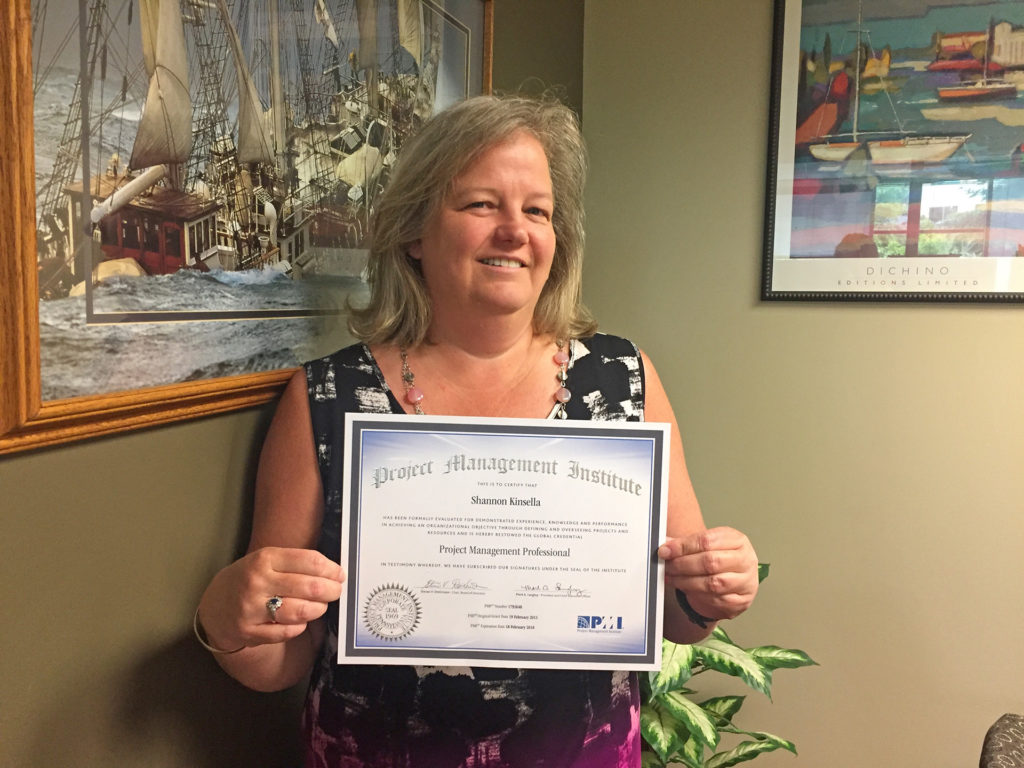Great project management is key to a successful project. In addition to excellent communication skills, a project manager must have knowledge and understanding of the numerous processes needed to complete a project, from the first step of initializing and scoping, through to final completion and closeout. Complex infrastructure rehabilitation and expansion projects require a project manager who can coordinate and communicate with a variety of team members and stakeholders and keep the project progressing on schedule from feasibility, through permitting and design, to that final celebratory ribbon-cutting ceremony.
Turning a Vision into Reality
As a young civil engineer at Reid Middleton, I enjoyed the technical aspects of design and the challenges of determining the right pipe or pile size for an element of the project. But what really fascinated me was seeing the overall work it took to get from a client’s idea or need, such as increased public access to the water or improved circulation and drainage in their parking area, to the constructed solution.
There are so many other questions that need to be answered for a project beyond just what size pipe should be used. What will the project elements include? Where is the funding coming from and how much is available? When does the facility need to be in operation? Can the proposed structures be permitted? What is the best layout for the facility? How can the facility stay in operation while the construction is occurring? How are conflicting needs and goals for the facility balanced? How are clear and correct documents from a multidisciplinary design team formulated on schedule that allow the contractor to build a quality facility?
As I progressed in my career, I was provided the opportunity to manage projects, starting out with smaller projects but eventually leading multidisciplinary teams implementing multimillion dollar facilities, learning and improving my project management skills every step of the way. In addition to learning on the job, there have been opportunities for project management training and education. I am fortunate to work for a company that understands that training our entire staff on project management skills greatly improves project success and the ability to meet client expectations.
Becoming a Project Management Professional
Following years of project management, a logical next step was obtaining certification as a Project Management Professional (PMP). Certification as a PMP provides an acknowledgement of a higher level of experience, competence and understanding of project management practices.
To apply for the PMP requires a significant amount of project management experience, 35 hours of educational training, as well as passing a test on project management principals. For someone with a high school or associates degree, a total of 7,500 hours directing and leading projects is required to apply for the PMP; for someone with a bachelor’s degree, 4,500 hours are required. The online application process is somewhat tedious, since you need to enter data and contacts for each project you have managed with specific project management hours spent separated by project phases. However, filling out the application does bring back memories of all the great projects (and some of the challenging projects where you learned a lot) that you have completed as a project manager.
Once your application is approved and you have paid the required fees, you can take the PMP test. The four-hour test consists of 200 multiple answer questions. Some of the test questions are difficult, with the multiple choice options given all being logical choices and the tester must pick the best one. However, there are a variety of study guides as well as in person and online classes that can help prepare you for the test.
Once you have passed the test, you are a Certified PMP. To maintain your PMP you must complete 60 Professional Development Units (PDU) every three years. There are a lot of resources to obtain PDUs, including local PMI chapter meetings, online courses, and the ability to train others and volunteer to help organizations with project management needs. All of these are great ways to continually improve your skills, train the next generation of PMPs, and share your knowledge.
For those who manage projects on a regular basis, I would highly recommend becoming a PMP. To learn more about the Project Management Institute, click here. The PMP certification demonstrates to others that you have a certain level of experience and understanding of globally accepted project management processes. While it takes time and effort, the preparation and training to obtain the PMP provides you increased knowledge and skills to manage your projects. Well-managed projects result in improved client satisfaction, better efficiencies, reduced risks, and an all-around better experience for the whole team in delivering successful projects.



